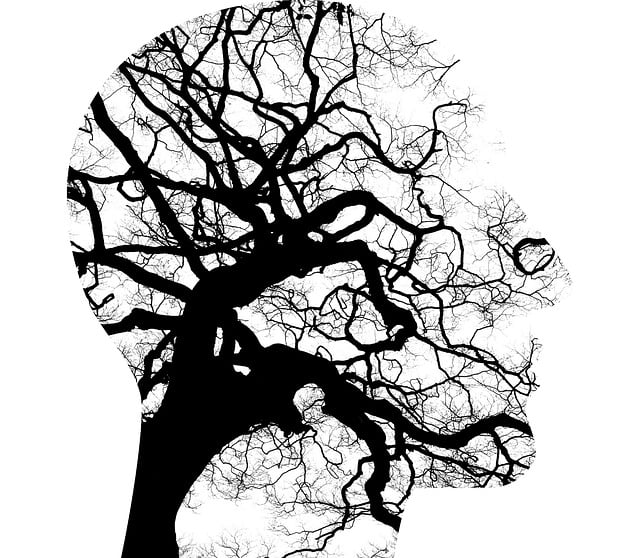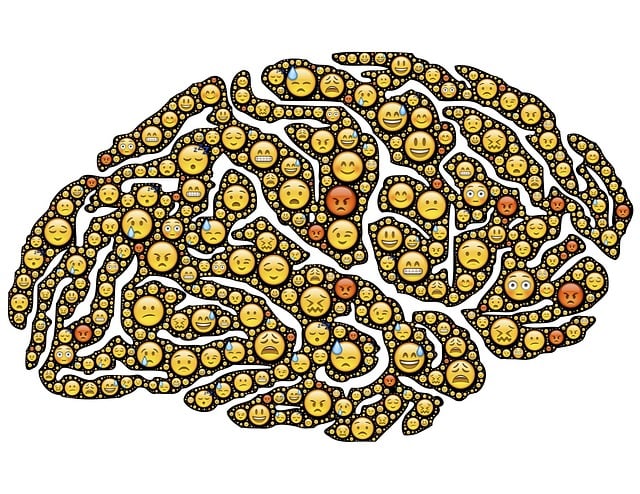In today's fast-paced world, Denver Couples Communication Issues Therapy programs are in high demand due to growing mental health awareness and diverse client needs. Effective therapy blends evidence-based practices with personalized interventions, focusing on emotional intelligence, cultural competency, active listening, conflict resolution, and emotional regulation. Public awareness campaigns destigmatize mental health issues, while regular risk assessments for therapists ensure their well-being. A holistic approach combines individual strategies, group support, digital accessibility, peer learning, and advocacy for systemic change. Success is measured through flexible evaluations, client feedback, self-care monitoring, crisis intervention guidance, and continuous professional development to maintain relevance and effectiveness in addressing Denver couples communication issues.
In today’s fast-paced world, mental wellness coaching programs have emerged as a crucial resource for individuals seeking balance and resilience. This article explores the development of such programs, with a specific focus on Denver Couples Communication Issues Therapy. We’ll delve into understanding the growing need, designing effective strategies, implementing maximally engaging approaches, and measuring success in these transformative journeys. By embracing innovative techniques, mental health coaches can facilitate profound positive changes for their clients.
- Understanding the Need for Mental Wellness Coaching Programs
- Designing Effective Denver Couples Communication Issues Therapy Programs
- Implementation Strategies for Maximizing Impact and Engagement
- Measuring Success and Continuous Improvement in Mental Health Coaching
Understanding the Need for Mental Wellness Coaching Programs

In today’s fast-paced world, mental wellness has become an increasingly important aspect of overall health and well-being. The demand for effective coaching programs that address emotional challenges and promote healthy coping mechanisms is on the rise, especially in urban centers like Denver. Many individuals, particularly those navigating relationships or experiencing communication issues in therapy, seek alternative approaches to complement traditional healthcare services.
Denver Couples Communication Issues Therapy has gained recognition as a valuable resource, but it’s important to recognize that mental wellness coaching goes beyond specific issues. Emotional Intelligence and building empathy are essential skills for coaches to teach, ensuring they can cater to a diverse range of clients. Healthcare Provider Cultural Competency Training also plays a crucial role in developing coaches who understand the unique needs of various communities, fostering inclusive and effective support systems for everyone, regardless of background or identity.
Designing Effective Denver Couples Communication Issues Therapy Programs

Developing effective Denver Couples Communication Issues Therapy programs requires a nuanced approach that combines evidence-based practices with tailored interventions. By focusing on improving communication dynamics, therapists can help couples navigate conflicts, enhance understanding, and foster emotional intimacy. These programs should integrate techniques such as active listening, conflict resolution strategies, and emotional regulation skills, tailored to address specific challenges faced by Denver couples.
Public awareness campaigns development is a crucial component, aiming to destigmatize mental health issues within the community. Educating individuals on recognizing signs of burnout prevention and promoting early intervention can significantly impact outcomes. Moreover, risk assessment for mental health professionals is essential; regular evaluations ensure practitioners are equipped to handle complex cases while maintaining their well-being. This holistic approach not only benefits couples seeking therapy but also contributes to a robust mental wellness ecosystem in Denver.
Implementation Strategies for Maximizing Impact and Engagement

To maximize the impact and engagement of mental wellness coaching programs, especially in areas like Denver where couples often face communication issues, a multi-faceted approach is essential. Implementing strategies that cater to individual needs while fostering group support can significantly enhance program effectiveness. Incorporating techniques such as cognitive behavioral therapy (CBT) for self-esteem improvement and resilience building allows participants to gain practical tools for managing mental health challenges.
Moreover, integrating digital platforms for online sessions and community forums ensures accessibility, catering to diverse schedules and preferences. Regular feedback mechanisms, tailored coaching plans, and opportunities for peer learning create a supportive environment that encourages active participation. By aligning these practices with the broader Mental Health Policy Analysis and Advocacy efforts, the programs can foster systemic change while offering direct benefits to individuals, ultimately strengthening the overall mental wellness ecosystem in Denver and beyond.
Measuring Success and Continuous Improvement in Mental Health Coaching

Measuring success and fostering continuous improvement are paramount aspects of developing effective mental wellness coaching programs, especially in areas like Denver where couples often face communication issues that require therapy. The journey to better mental health is highly individualized, making it essential for coaches to employ flexible evaluation methods. By utilizing a combination of self-reported progress, feedback from clients, and objective assessments, coaches can accurately gauge the impact of their guidance. Self-care practices and emotional healing processes are integral components that should be regularly reviewed, as they play a significant role in overall mental wellness.
Additionally, crisis intervention guidance is another critical area to monitor. Coaches must be adept at recognizing when a client’s situation necessitates immediate attention and adjustment of the coaching approach. Regular program reviews, client feedback sessions, and ongoing professional development for coaches ensure that services remain relevant, effective, and aligned with best practices in mental health care, such as those often sought through Denver couples communication issues therapy.
Mental wellness coaching programs, such as those addressing Denver Couples Communication Issues Therapy, have become indispensable tools for promoting holistic well-being. By integrating effective design principles, strategic implementation, and rigorous measurement, these programs can significantly enhance engagement and outcomes. As the demand for mental health support continues to grow, a data-driven approach ensures that coaching initiatives remain relevant and impactful, ultimately fostering healthier individuals and communities.














